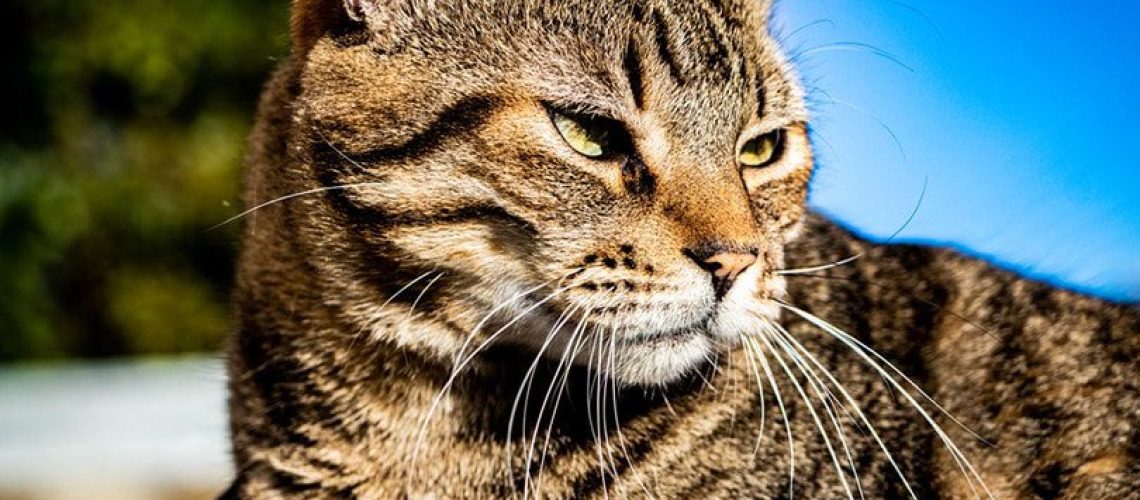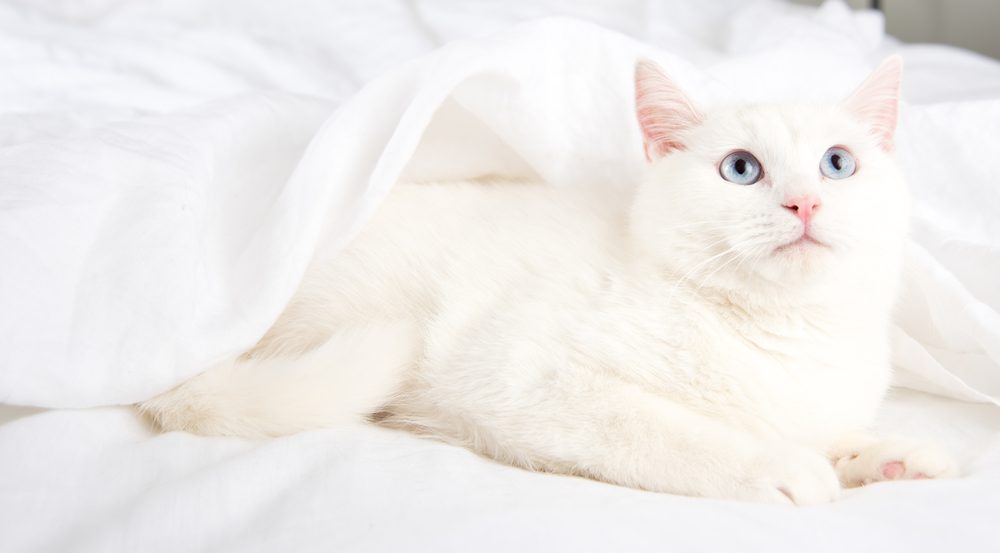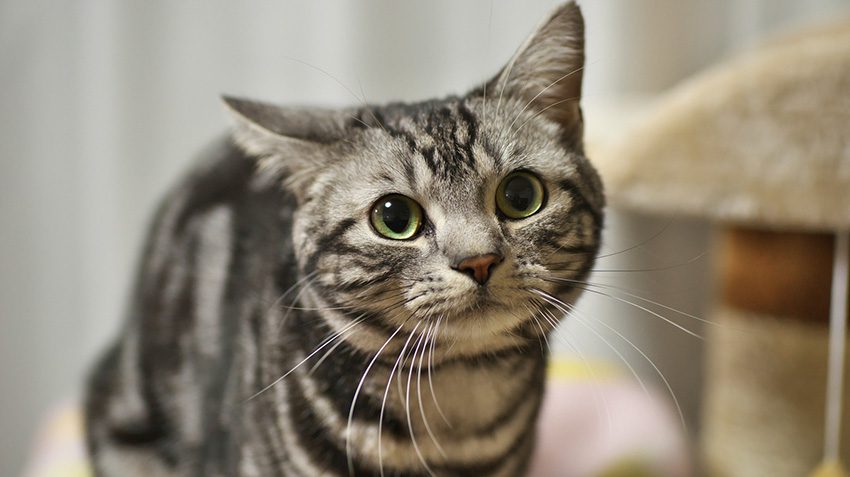Discover the lively and affectionate Brazilian Shorthair cat, a delightful companion known for playful nature and love. Whether you're a cat lover or curious, explore the world of these feline friends for a multitude of benefits. Understanding their unique qualities is essential for informed decisions about adding them to your family. Embark on an exciting journey to uncover the wonders of Brazilian Shorthair cats and be captivated by their charm. Join us as we explore the vibrant world of these delightful creatures together!
Key Takeaways:
- Brazilian Shorthair cats are lively and energetic companions.
- They are native to Brazil and have a short, dense coat.
- These cats are known for their playful nature and love to interact with their owners.
- Brazilian Shorthairs are adaptable and can easily adjust to different living environments.
- They require regular mental and physical stimulation to keep them happy and healthy.
What is a Brazilian Shorthair cat and where do they come from?
The Origins of Brazilian Shorthair Cats
Brazilian Shorthair cats, as the name suggests, originated in Brazil. They are a breed that developed naturally over time through natural selection. These cats have been living in Brazil for centuries, adapting to the local environment and climate.
It is believed that Brazilian Shorthair cats are descendants of European cats brought to Brazil by Portuguese explorers during the colonization period. Over time, these cats interbred with local feral cats, resulting in the development of a distinct breed known as the Brazilian Shorthair.
Characteristics of Brazilian Shorthair Cats
- Brazilian Shorthair cats are medium-sized with a muscular build.
- They have short, dense coats that come in various colors and patterns.
- Their eyes are large and expressive, ranging in color from green to gold.
- These cats have a friendly and sociable nature, making them great companions for families.
- They are known for their intelligence and curiosity, always exploring their surroundings.
Overall, Brazilian Shorthair cats are a unique breed with a rich history and distinctive characteristics that make them stand out among other cat breeds.
Discover the personality of Brazilian Shorthair cats!
Friendly and Sociable Nature
Brazilian Shorthair cats have a friendly and sociable nature. They enjoy being around people and are known for their affectionate behavior. These cats love to be petted and cuddled, making them perfect companions for individuals or families looking for a loving pet.
They are also quite sociable with other pets, including dogs and other cats. Brazilian Shorthair cats have a natural ability to adapt and get along well with different animals, making them an excellent choice for multi-pet households.
Intelligent and Curious
Brazilian Shorthair cats are highly intelligent and curious creatures. They love to explore their surroundings and engage in interactive play. These cats enjoy puzzle toys and games that stimulate their minds.
Their intelligence also makes them quick learners. Brazilian Shorthair cats can easily be trained to perform tricks or respond to commands, which adds an extra level of fun and interaction between the cat and its owner.
In summary, Brazilian Shorthair cats have a wonderful personality that combines friendliness, sociability, intelligence, and curiosity. They make great companions for individuals or families looking for an affectionate and playful pet.
Learn about the physical characteristics of Brazilian Shorthair cats.
Muscular Build
Brazilian Shorthair cats have a medium-sized body with a muscular build. Their strong muscles give them agility and grace in their movements. Despite their muscular appearance, they are not overly bulky or heavy.
Short Coat
The most distinctive physical feature of Brazilian Shorthair cats is their short coat. The coat is dense and lies close to the body, giving it a sleek look. This short coat requires minimal grooming compared to long-haired breeds.
Coat Colors
- Brazilian Shorthair cats come in various colors such as black, white, gray, brown, cream, or a combination of these colors.
- They can have solid coat colors or patterns such as tabby, tortoiseshell, or calico.
- Each cat's coat is unique, with no two cats having exactly the same pattern or color distribution.
Eye Colors
- The eyes of Brazilian Shorthair cats are large and expressive.
- Their eye color can range from green to gold, complementing their coat colors.
- Some cats may even have heterochromia, where each eye has a different color.
In conclusion, Brazilian Shorthair cats have a muscular build and short coat that comes in various colors and patterns. Their large and expressive eyes add to their overall charm and beauty.
Find out if Brazilian Shorthair cats can adapt to different living environments.
Adaptability to Different Living Environments
Brazilian Shorthair cats are highly adaptable to different living environments. Whether you live in an apartment or a house with a yard, these cats can thrive in both settings. They are equally comfortable indoors as well as outdoors under proper supervision.
These cats have a moderate energy level and do not require extensive exercise like some other breeds. However, they do enjoy interactive play sessions and mental stimulation. Providing them with toys and scratching posts will help keep them entertained and prevent boredom.
Tolerance for Climate Variations
Brazilian Shorthair cats have developed tolerance for the climate variations found in Brazil. They can handle both hot and humid weather conditions as well as cooler temperatures. However, it is important to provide them with appropriate shelter and access to fresh water at all times to ensure their well-being.

In summary, Brazilian Shorthair cats are adaptable to different living environments and can handle various climate conditions. With proper care and attention, they can thrive in both indoor and outdoor settings.
Are Brazilian Shorthair cats good with children and other pets?
Compatibility with Children
Brazilian Shorthair cats are generally good with children. They have a friendly and sociable nature, making them patient and tolerant towards kids. However, it is important to teach children how to handle and interact with cats properly to ensure the safety and well-being of both the cat and the child.
Supervision is always recommended when young children are interacting with any cat breed to prevent accidental harm or rough handling.
Compatibility with Other Pets
Brazilian Shorthair cats are known for their ability to get along well with other pets, including dogs and other cats. Their sociable nature allows them to adapt easily to new companions. Proper introductions should be done gradually, allowing the animals to become familiar with each other's scents before direct interaction.
It is important to monitor initial interactions between pets and provide a safe space for each animal if needed. With time, most Brazilian Shorthair cats can form strong bonds and friendships with other pets in the household.
Explore how Brazilian Shorthair cats communicate and show affection.
Vocalizations
Brazilian Shorthair cats use various vocalizations to communicate their needs or desires. They may meow, purr, chirp, or trill to express themselves. Each cat has its own unique set of vocalizations that owners can learn to understand over time.
Body Language
Cats communicate through body language as well. Brazilian Shorthair cats may use their tail, ears, and posture to express their emotions. For example:
- A wagging tail can indicate excitement or playfulness.
- Flattened ears may signal fear or aggression.
- A relaxed and open posture indicates contentment and trust.
Affectionate Behavior
Brazilian Shorthair cats are known for their affectionate behavior towards their owners. They may rub against your legs, purr loudly when being petted, or curl up next to you for a nap. These are all signs of their love and trust.
Some cats also enjoy gentle head bumps or "kisses" as a way to show affection. It's important to respect the cat's boundaries and preferences when it comes to physical contact.
Caring for your Brazilian Shorthair cat: grooming and health tips.
Grooming Needs
Brazilian Shorthair cats have short coats that require minimal grooming compared to long-haired breeds. However, regular brushing can help remove loose hair and keep their coat looking sleek. Brushing also helps prevent hairballs by reducing the amount of hair they ingest during self-grooming.
In addition to brushing, it is important to trim their nails regularly, clean their ears, and brush their teeth to maintain overall hygiene.
Health Considerations
Brazilian Shorthair cats are generally healthy cats with no specific breed-related health issues. However, like all cats, they should receive regular veterinary check-ups and vaccinations to ensure they stay in good health.
It is also important to provide them with a balanced diet that meets their nutritional needs and keeps them at a healthy weight. Obesity can lead to various health problems in cats.
Interesting facts and unique traits of Brazilian Shorthair cats!
Natural Breed
Brazilian Shorthair cats are a natural breed that developed over time through natural selection. Unlike some other cat breeds that were created through selective breeding, Brazilian Shorthair cats have evolved naturally in their environment.
Diverse Coat Colors and Patterns
Brazilian Shorthair cats come in a wide range of coat colors and patterns. Each cat's coat is unique, making them truly one-of-a-kind pets. Whether you prefer solid colors or intricate patterns, there is a Brazilian Shorthair cat for everyone.
Popular in Brazil
In Brazil, the Brazilian Shorthair is a popular breed among cat lovers. They are recognized by local cat associations and participate in cat shows and competitions. Their popularity continues to grow both within Brazil and internationally as more people discover their wonderful traits.
In conclusion, Brazilian Shorthair cats are energetic and friendly pets that make great companions. Originating from Brazil, they bring joy and liveliness to any household, making them an excellent choice for cat lovers of all ages.
How much does a Brazilian Shorthair cat cost?
The price range for Brazilian Shorthair cats is typically between $1,000 and $1,300.
What is the personality of a Brazilian cat?
The Brazilian Shorthair is a sociable cat breed known for its friendly nature and adventurous personality. Despite being a purebred, they still retain the characteristics of street cats, which makes them enjoy meeting new people and exploring new environments. These cats thrive when given plenty of attention, playtime, and cuddles.
Do exotic shorthairs get along with other cats?
Exotic Shorthairs have a similar calm and gentle temperament as Persians, but they are generally more active than their longhaired ancestors. They are curious and playful, getting along well with other cats and dogs. However, they do not enjoy being alone and require the company of their owner.
Do European shorthair cats get along with other cats?
If you already have cats in your home and are considering getting a European Shorthair, they generally have a good relationship with other cats and can even get along well with dogs. However, their main goal is to make their owners happy and please them.
What is the most expensive single cat in the world?
The Ashera cat is known as the most costly cat breed globally, with a price tag of over $100,000. This high price is primarily because of its rarity and the fact that it is a hybrid breed resulting from breeding an African serval, an Asian leopard cat, and a domestic house cat.
What is the calmest shorthair cat?
People love Exotic Shorthair cats for their laid-back and calm demeanor. They are not energetic, but they can keep themselves entertained with toys or simply enjoy basking in the sun. Compared to Persian cats, they are also much easier to groom and take care of.

















